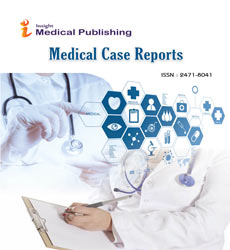4SCAR2.0 Treating Refractory B Cell Lymphomas: An advanced Technology Saves More Lives!
Cheng Jiao, Liyuan Sheng and Lung-Ji Chang
DOI10.36648/2471-8041.21.7.183
1Shenzhen Geno-Immune Medical Institute, Shenzhen, 518000, China
2PKU-HKUST Shenzhen-Hong Kong Institutions, Shenzhen, 518057, China
3Peking University, Shenzhen Institute, Shenzhen Key Lab for Human Tissue Regenerate and Repair, Shenzhen, 518057, China
4University of Electronic Science and Technology of China, Sichuan, 611731, China
- Corresponding Author:
- Cheng Jiao, MD & PhD Shenzhen Geno-immune Medical Institute, PKU-HKUST Shenzhen-Hong Kong Institutions, 2nd FL. 6 Yuexing 2nd Rd., Nanshan Dist. Shenzhen, Guangdong China 518000, Tel:+86182-0217-3776; Email: verajoe@mail.ru.
Received date: May 03, 2021; Accepted date: May 17, 2021; Published date: May 24, 2021
Citation: Jiao C, Sheng LY and Chang LJ(2021) 4SCAR2.0 Treating Refractory B Cell Lymphomas: An Advanced Technology Saves More Lives!. Med Case Rep Vol.7 No.5:1 83
Abstract
CAR-T cell therapy represents an innovative and effective therapy forpatientswithrefractory/relapsed Bcellmalignancies. However, many limitations remain with the currently approved CAR-T products, including antigen escape, CAR-T exhaustion in vivo, significant toxicity, and high cost, to name a few.
Keywords
CAR-T cell; Malignancies; lymphoma
Introduction
CAR-T cell therapy represents an innovative and effective treatment for patients with refractory/relapsed B cell malignancies. Remarkably, the anti-CD19 CAR-T cells treating B cell acute lymphoblastic leukemia (B-ALL) can achieve close to a 90% complete remission (CR) rate. However, many limitations remain with the currently approved CAR-T products, including target antigen escape, CAR-T exhaustion in vivo, significant toxicity and high cost, to name a few.
Based on an advanced 4th generation CAR design (4SCAR), our team in Shenzhen Geno Immune Medical Institute has demonstrated not only a significant improvement in efficacy, but also a high safety feature (low to no severe toxicity) by integrating multiple co-stimulatory signalling domains and an inducible suicide gene design. After years of clinical experiences, the 4SCAR19 T cell therapy has demonstrated a remission rate matching the 3rd generation CAR design but without severe side effects [1-12].
The ultimate goal for the 4SCAR2.0 therapy in treating highly refractory/ relapsed B cell lymphomas (r/r BCLs) is to completely eradicate residual tumor cells, to prevent tumor antigen escape, and to prevent recurrence [13]. The novel regimen is designed to apply multiple CAR-T cell infusions to target different tumor antigens and to extend the in vivo CAR-T cell persistence. The 4SCAR2.0 regimen includes a primary and booster CAR-T infusions, and a consolidation infusion as needed. The number of infusions is based on patient’s condition and tumor response. Through infusions of multi target 4SCAR-T cells, patients with r/r BCLs have obtained significant curative effect with little to no adverse reactions. Importantly, the 4SCAR2.0 is highly affordable due to the advanced technology improvement.
The key features to the success of the 4SCAR2.0 strategy are the followings
(1) Preserving good quality of immune cells at an earlier time: The collection of peripheral blood mononuclear cells (PBMCs) should be arranged prior to extensive chemotherapies, at the time of relapse and prior to re-induction chemotherapy. For examples, Patient 1 (Figure 1A) was not given any chemotherapy before a single apheresis blood cell collection for all of the CAR-T prepara- tions; Patient 2 (Figure 1B) collected PBMCs prior to a series of chemotherapies and auto transplantation and received 4SCAR-T infusions after achieved remission.
Figure 1: The timeline and key events of the 4SCAR2.0 therapy. (A) The timeline and key events of multiple 4SCART therapy for Patient 1. (B) The timeline and key events of multiple 4SCART therapy for Patient 2. (C) The timeline and key events of multiple 4SCART therapy for Patient 3. (D) The timeline and key events of multiple 4SCART therapy for Patient 4.
(2) Precision tumor targeting multi CAR-T regimen.The target antigens for the CAR-T cells were identified by immune staining of individual tumor specimens which were obtained at the time of initial diagnosis or relapses.
(3) Extended in vivo protective CAR-T memory. Through primary, booster and consolidation CAR-T infusions, the 4SCAR2.0 regimen can maintain the tumor targeting T cell reservoirs and ex- tend the CAR-T cell memory (Figure 1).
In summary, the 4SCAR2.0 regimen presents characteristics of low toxicity and high response rate, and still, is affordable for most patients; for example, the total treatment cost was less than 100,000 USD for the 5 CAR-T preparations for Patient 1 including two months of hospitalization costs.
Conflict of Interest
There is no competing financial conflict of interests from all authors.
Acknowledgements
This study was supported by research funds from Science and Technology Planning Technical Research Project of Shenzhen (JCYJ20170817172416991, JCYJ20170817172541842).
References
- Jing H, Chang L-J, Chen M, Bao F, Wang J, et al. (2015) Up Regulation of CAR-T Cells after G-CSF and dexamethasone treatment in a defuse large B cell lymphoma patient receiving 4SCAR19 T cell therapy. Blood 126:5130â??5130.
- Luo Y, Chang L-J, Hu Y, Dong L, Wei G, et al. (2015) First in Man CD123-Specific Chimeric antigen receptor-modified t cells for the treatment of refractory acute myeloid leukemia. Blood 126:3778â??3778.
- Niu T, Chang L-J, Yang J, Liu Y, Dong L, et al. (2015) Rescue of a terminally ill patient with chemo-refractory acute lymphoblastic leukemia carrying Bcr/Abl and TP53 mutations based on a 4th generation cd19 chimeric antigen receptor-engineered T (CAR-T) Therapy. Blood 126:5431â??5431.
- Chang L-J, Dong L, Zhu J, Ying Z, Kuo H-H, et al. (2015) 4SCAR19 chimeric antigen receptor-modified t cells as a breakthrough therapy for highly chemotherapy-resistant late-stage B cell lymphoma patients with bulky tumor mass. Blood 126:264â??264.
- Lai X, Gu X, Tsao S-T, Zhang Q, Liu Y-C, et al. (2017) Double CD19/CD22 chimeric antigen receptor-modified t cells for the treatment of stage iv relapsed and refractory follicular lymphoma. Blood 130:5154â??5154.
- Yang L, Ma X, Liu Y-C, Zhao W, Yu L, et al. (2017) Chimeric antigen receptor 4SCAR-GD2-modified t cells targeting high-risk and recurrent neuroblastoma: A phase ii multi-center trial in China. Blood 130:3335â??3335.
- Nishio N, Wang K, Narita K, Kataoka S, Kitazawa H, et al. (2017) Durable remission after salvage chemotherapy with combining bortezomib and vorinostat followed by CD19 CAR-T therapy in a patient with mll-rearranged all after early relapse post allogeneic hematopoietic stem cell transplantation. Blood 130:3334â??3334.
- Chang L-J, Li Y, Tu S, Lai X, Huang R, et al. (2018) Phase I/II Trial of multi target chimeric antigen receptor modified t cells (4SCAR2.0) Against relapsed or refractory lymphomas. Blood 132:225â??225.
- Tu S, Deng L, Huang R, Zhou X, Yang J, et al. (2018) A novel chimeric antigen receptor t cells therapy strategy that dual targeting CD19 and CD123 to treat relapsed acute lymphoblastic leukemia after allogeneic hematopoietic stem cell transplantation. Blood 132:4015â??4015.
- Tu S, Huang R, Zhou X, He Y, Liang Z, et al. (2018) Combination of CD19 and CD70 Specific chimeric antigen receptor t cells achieves long-term disease-free survival in relapsed and refractory primary central nervous system diffuse large b cell lymphoma. Blood 132:5389â??5389.
- Zhang R, Li Y, Tu S, Huang R, Lai X, et al. (2020) Improved safety and efficacy of a multi-target chimeric antigen receptor modified t cell therapy (4SCAR2.0) against relapsed or refractory lymphomas. Blood 136:47â??47.
- Zhang R, Xiao J, Liu Z, Sun Y, Tu S, et al. (2020) CAR2.0 therapy for the management of post-transplantation relapse of B-Cell acute lymphoblastic leukemia. Blood 136:7â??7.
- Jiao C, Zvonkov E, Lai X, Zhang R, Liu Y, et al. (2021) 4SCAR2.0: A multi-CAR-T therapy regimen for the treatment of relapsed/refractory B cell lymphomas. Blood Cancer J 11:1â??5.

Open Access Journals
- Aquaculture & Veterinary Science
- Chemistry & Chemical Sciences
- Clinical Sciences
- Engineering
- General Science
- Genetics & Molecular Biology
- Health Care & Nursing
- Immunology & Microbiology
- Materials Science
- Mathematics & Physics
- Medical Sciences
- Neurology & Psychiatry
- Oncology & Cancer Science
- Pharmaceutical Sciences

